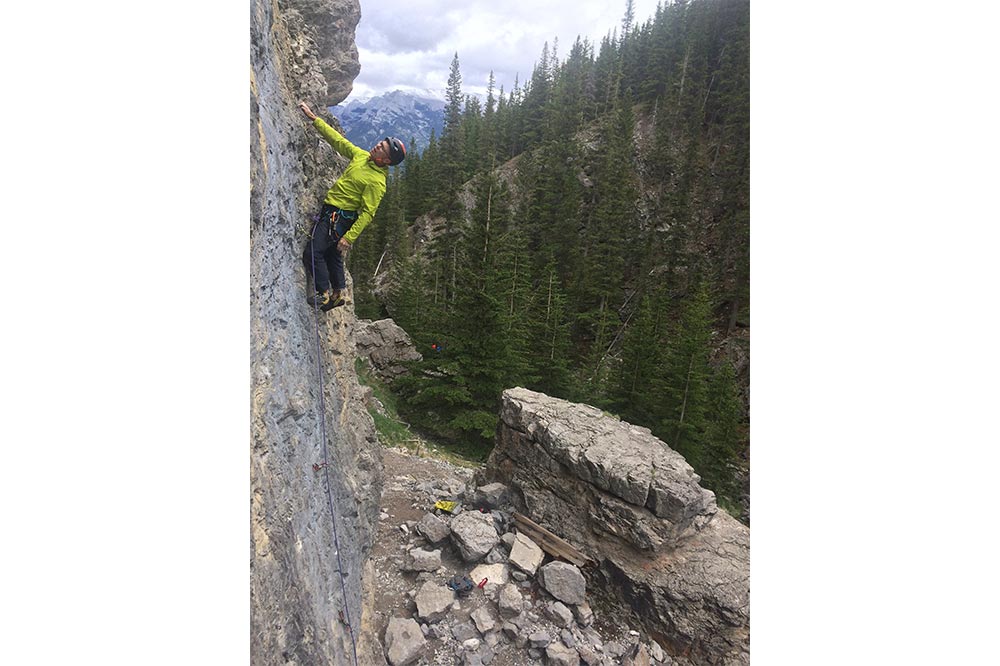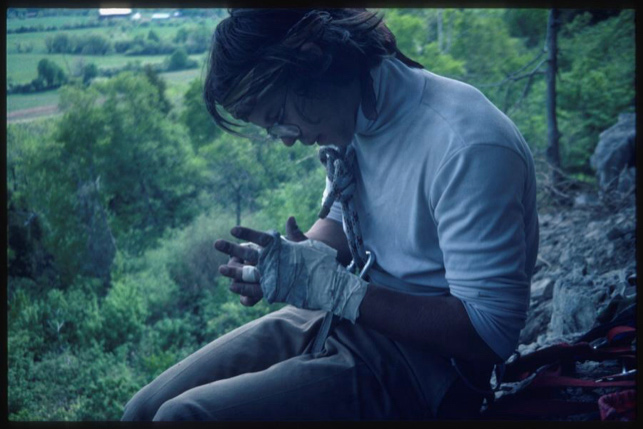Dave Smart – 2019 Summit Of Excellence Award Winner
Congratulations on winning the prestigious 2019 Summit of Excellence award. The award is given out to individuals that have made a significant contribution to Canadian climbing. Being from Ontario, a region that outside of the province is not widely recognized for its climbing culture, you must be particularly pleased to receive this award.
Can you provide some background information about the award and how winners are chosen?
Can you provide some background information about the award and how winners are chosen?
Dave Smart: Bill March, an ex-pat Brit, led the first Canadian Everest Expedition in 1982, back when Everest was a serious objective, before the guiding scene. He was a really accomplished all-round climber, and when he died, an award for someone who contributed to mountain and climbing culture in the Rockies was founded. About six years ago it was expanded to include climbers from all over Canada. Naturally, there was a backlog of talented individuals. Don Serl and David Jones, super-prolific climbers, guidebook editors and figureheads in the BC mountains and cliffs won, but that was just a start on a big crowd of eligible BC people. Jacques Olek of Quebec was the first eastern climber to win it. He had participated in numerous winter expeditions to the Himalayas. I’m the first person from Ontario to win it. The prize is chosen by a committee. I’ve never been on the committee, so I don’t know what they discuss, but most of the choices they have made have been for people whose contribution has been long-standing and to the culture of climbing rather than just hard climbing. I don’t know who nominated me. The two people who I thought had done so denied it.
The award was historically given to individuals based in the Rockies. This has recently changed, and now all Canadian climbers are eligible. Can you comment on the significance of this change?
Dave Smart: I think it’s an admission that climbing is where people find it on the one hand, and that there is a long-standing inter-connectedness between the main scenes in the country. The mountain culture programs of the Banff Centre have led the way nationally and internationally in breaking down barriers of regionalism, racism, sexism and colonialism within climbing culture, and they are Canadian. I think everyone who climbs in Canada can be proud of these continuing efforts.
You’ve been involved with climbing most of your life. What does this award mean to you on a personal level?
Dave Smart: Bohemian composer Erik Satie said that the important thing is not to receive an honour and turn it down, but to make sure you never did anything worthy of one to begin with, so I suppose I failed in that regard. Honestly, we’re such a disrespectful bunch, it’s sort of fun to get some respect. Climbing has given me most of the things I value in my life, and I have given more to it than I did to anything else, so I’m proud to receive some recognition.
Climbing new routes is like writing; the only reason to do it is because you cannot stop yourself.
Rarely do climbers operate in a vacuum without outside influences. Who were some of the climbers that influenced your development over the decades?
Dave Smart: Dave Lanman, George Manson, Brian Hibbert were early mentors. I was really influenced by people I climbed with who were close to my age; Dave Lanman, Hugh Herr, Wolfgang Gullich and Todd Skinner, to name a few. The incredible importance of Skinner, Alan Watts and Porter Jarrard in the modernization of North American rock climbing can’t be exaggerated. Read Jeff Smoot’s Hangdog Days and see for yourself.
You’ve always been a big proponent of the concept of “local climbing.” Do you think this award helps to legitimize this notion?
Dave Smart: Yes, I think so. I am not a fan of inward-looking self-referential scenes though. There’s such a thing as over-local scenes.
You’ve seen climbing evolve from a rebellious fringe activity to a mainstream pursuit for average families. Any thoughts on the sport’s evolution?
Dave Smart: Anyone who opposes this change is going against history. Good luck. I think the challenge is inculturating newcomers to the history and values of the sport. The Ontario Alliance of Climbers is doing a world-class job on this rugged task in my opinion.
You have an impressive reputation for building new routes and an equally impressive resume of First Ascents. What’s motivated you over the years to establish new climbs?
Dave Smart: Apart from vexing technical matters like whether to place anchors, no anchors or hang a sling from a branch, climbing new routes is like writing; the only reason to do it is because you cannot stop yourself.
Ok, enough with the serious questions. Are you working on any new writing projects?
Dave Smart: Yes, I just finished my biography of the Austrian inventor of rock climbing, Paul Preuss and am working on a book on Emilio Comici, who invented big wall climbing.
And now for perhaps the most important question, do you have any upcoming climbing trips?
Dave Smart: The season’s over for me, except for local climbing. Next year I hope to go somewhere in Europe again and back to the Rockies. Then there is the Eyeball…
Join the discussion of this and other climbing related stories at https://ontarioclimbing.com/forum/




